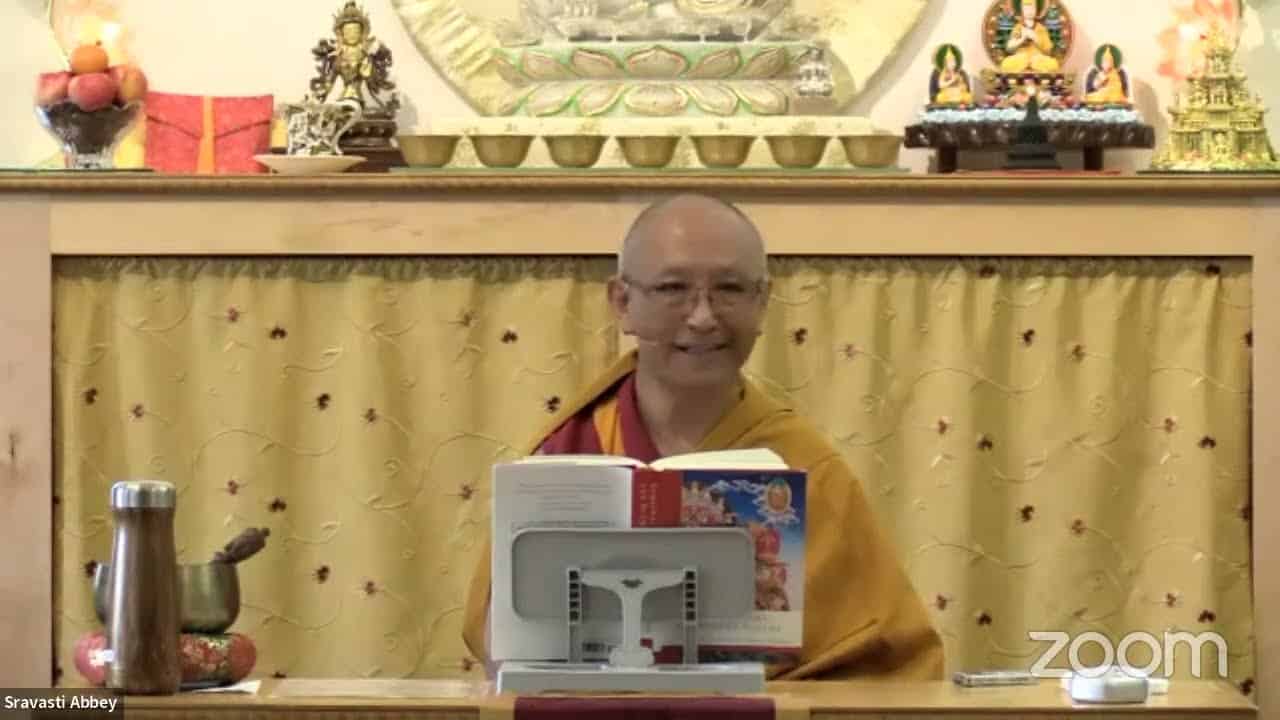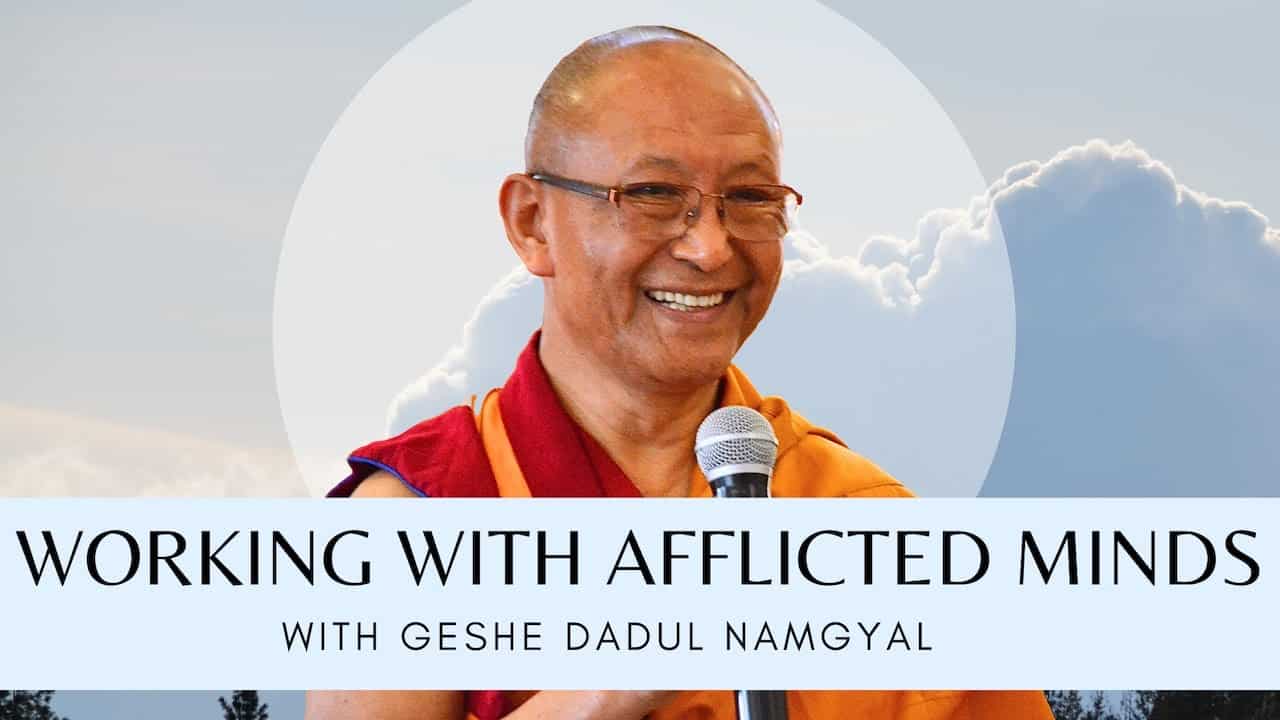Mapping the Buddhist path onto combating the afflictions
01 Working with Afflictive Minds
Part of a series of weekend teachings on "Working with Afflictive Minds" given at Sravasti Abbey from June to August 2023.
- The heart of the Buddha’s teaching
- Causes of happiness and suffering
- Why we want to identify and subdue the afflictions
- Indian masters on the afflictions
- Shantideva: A bodhisattva’s perspective
- Purnavardhana and Yashomitra: Relationship between afflictions, karma, and cyclic existence
- His Holiness the Dalai Lama: Our suffering arises solely from the afflictions
- The entire Buddhist path maps onto combating the afflictions
- The measure of our practice
- Question: What afflictions underlie anxiety and depression?
- A step-by-step approach to working with afflictions
Scriptural quotes
Do not commit any non-virtuous actions
Commit only virtuous actions
Subdue your mind completely
This is the teaching of the Buddha
Dhammapada, Verse 183
It would be better for me to be buried,
To have my head cut off and to be killed,
Rather than ever bowing down
To the afflictions, my enemies.
Engaging in the Bodhisattvas’ Deeds by Shantideva
The chariot of existence, driven by childlike beings
Possesses the wheels of affliction and karma.
But if the wheel of affliction breaks,
The wheel of karma alone cannot turn.
Explanatory Commentary to Abhidharmakosha by Punarvadhana
The arhats may not be without birth-impelling indefinite karmas, either virtuous or non virtuous, accumulated from their time as ordinary beings [in the past]. However, since they do not possess afflictions, those [karmas] cannot be ripened to bring about birth in [samsaric] existence [anymore].
Clear-word Subcommentary on the Abhidharmakosha by Yashomitra
Geshe Tenzin Chodrak (Dadul Namgyal)
Geshe Tenzin Chodrak (Dadul Namgyal) is a prominent scholar who earned a Geshe Lharampa degree in Buddhism and Philosophy from Drepung Monastic University in 1992. He also holds a Master’s degree in English Literature from Panjab University in Chandigarh, India. Author of several books on Buddhism, Geshe Tenzin Chodrak was also professor of Philosophy at Central Institute of Higher Tibetan Studies in Varanasi, India for seven years. In addition, he has been the Spiritual Director of Losel Shedrup Ling Tibetan Buddhist Center, Knoxville, USA. Due to his facility in both Tibetan and English, he is interpreter and speaker for numerous conferences exploring the interface of Buddhism with modern science, Western philosophy, and psychology and other religious traditions on both a national and international level. Geshela’s language ability has also enabled him to serve as an auxiliary language translator for His Holiness and Dalai Lama throughout the world. As a published author and translator, Geshela’s credits include a Tibetan translation of His Holiness the Dalai Lama’s Power of Compassion, a language manual, Learn English through Tibetan, and a critical work on Tsongkhapa’s Speech of Gold. Geshela lived and worked at Drepung Loseling Monastery in Atlanta, Georgia, where he prepared a six-year curriculum in Modern Science to be used in Tibetan monasteries and nunneries. Geshe Tenzin Chodrak is also on the Sravasti Abbey Advisory Board.


